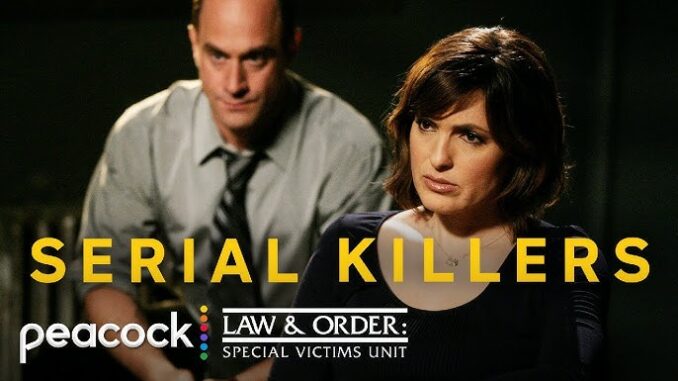
Echoes in the Precinct: Real-Life Crime Cases and the Enduring Legacy of Law & Order: SVU
The iconic "dun-dun" sound that punctuates the scene transitions in Law & Order: Special Victims Unit is more than just a sonic signature; it’s an auditory cue, a warning chime, signaling the descent into the often-disturbing, yet deeply relevant, narratives of human darkness. For over two decades, SVU has stood apart in the landscape of procedural dramas, not just by its unflinching focus on sexually-based offenses, but by its distinct, almost uncanny, ability to mirror the most sensational, heart-wrenching, and infuriating real-life crime cases dominating headlines. This "ripped from the headlines" approach is not merely a clever writing device; it is the very bedrock of the show's enduring power, transforming public anxieties and legal quandaries into a cathartic, if often uncomfortable, cultural conversation.
At its core, SVU functions as a societal seismograph, registering the tremors of real-world crime and translating them into fictionalized, yet deeply resonant, narratives. One of the most frequently revisited themes, inspired by countless real incidents, is the pervasive and insidious nature of child abuse and exploitation. While no single case directly translates into an SVU episode without significant fictionalization, the show consistently draws upon the public’s horror and confusion surrounding cases like that of Caylee Anthony, where a child’s disappearance and death became a media circus, culminating in a controversial verdict. SVU episodes inspired by such events often delve into the complexities of circumstantial evidence, the biases of public opinion, and the agonizing inability of the legal system to always provide clear-cut justice or closure. They explore the unimaginable scenarios parents face, the devastating impact on first responders, and the moral ambiguities that arise when the truth remains elusive, echoing the collective frustrations felt by audiences watching similar real-life tragedies unfold.
Furthermore, SVU has masterfully navigated the complex landscape of celebrity misconduct and the #MeToo movement, drawing inspiration from high-profile cases that have rocked Hollywood and beyond. While never directly naming individuals like Harvey Weinstein or Bill Cosby, the show has produced a multitude of episodes exploring the dynamics of power abuse, serial predation, and the immense courage it takes for victims to come forward. These narratives often feature powerful figures—producers, politicians, athletes, or artists—who exploit their positions, leveraging their influence to silence and victimize. SVU's take on these cases often spotlights the systemic failures that enabled such abusers for years, the psychological manipulation tactics employed, and the Herculean effort required to dismantle decades-old patterns of cover-ups. By fictionalizing these scenarios, SVU offers a crucial space for public discourse, allowing viewers to process the moral outrage, the legal challenges, and the societal shifts that define movements like #MeToo, bringing a sense of validation and agency to real-life survivors who often feel unheard.
Beyond the sensational and the systemic, SVU also frequently draws from specific, often bizarre or technologically driven, criminal methodologies. From episodes inspired by online catfishing scams and revenge porn to narratives exploring human trafficking rings facilitated by social media, the show consistently reflects the evolving nature of crime in the digital age. Real-life cases where victims were lured, exploited, or blackmailed through online platforms find their fictional counterparts in SVU, highlighting the new vulnerabilities modern technology creates. These episodes serve a dual purpose: they entertain by weaving intricate plots, but they also educate, raising public awareness about emerging threats and the sophisticated tactics criminals employ. They often explore the often-invisible suffering of victims who might be too ashamed or scared to report, and the arduous task faced by law enforcement in tracking down perpetrators across digital landscapes.
In essence, Law & Order: SVU is more than just a crime drama; it is a cultural touchstone that reflects and refracts the darkest corners of human experience. By meticulously "ripping from the headlines," it provides a vital platform for confronting uncomfortable truths, exploring the intricacies of justice, and fostering a necessary dialogue about societal traumas. The show's enduring legacy lies in its unwavering commitment to giving voice to the voiceless, to dissecting the complexities of victimhood, and to reminding us that the fight for justice, though often arduous and imperfect, is a shared and ceaseless endeavor, mirroring the very real struggles that inspire its compelling narratives.
